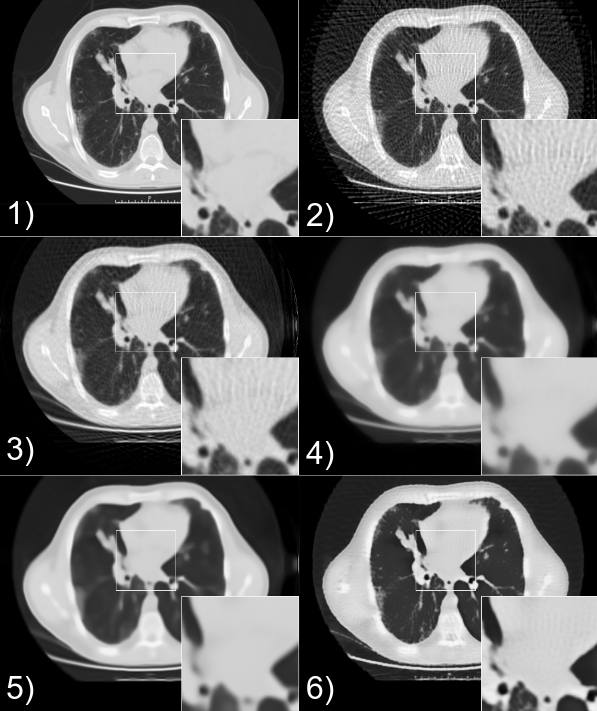Self-Supervised Training For Low Dose CT Reconstruction
Ionizing radiation has been the biggest concern in CT imaging. To reduce the dose level without compromising the image quality, low-dose CT reconstruction has been offered with the availability of compressed sensing based reconstruction methods. Recently, data-driven methods got attention with the rise of deep learning, the availability of high computational power, and big datasets. Deep learning based methods have also been used in low-dose CT reconstruction problem in different manners. Usually, the success of these methods depends on labeled data. However, recent studies showed that training can be achieved successfully with noisy datasets. In this study, we defined a training scheme to use low-dose sinograms as their own training targets. We applied the self-supervision principle in the projection domain where the noise is element-wise independent which is a requirement for self-supervised training methods. Using the self-supervised training, the filtering part of the FBP method and the parameters of a denoiser neural network are optimized. We demonstrate that our method outperforms both conventional and compressed sensing based iterative reconstruction methods qualitatively and quantitatively in the reconstruction of analytic CT phantoms and real-world CT images in low-dose CT reconstruction task.
PDF Abstract
